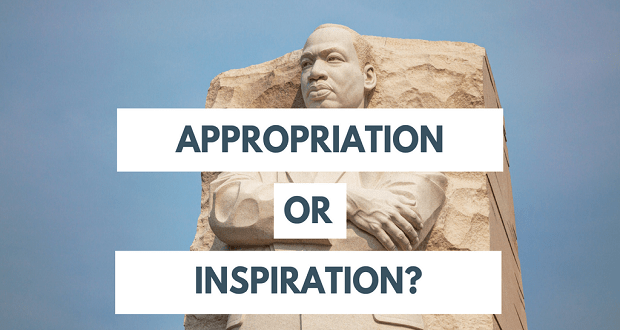
Last week, Brittany J. Harris modeled the reflection that she previously encouraged our readers to participate in—considering how and where white supremacy culture and its values show up in her work. This week, I take on the same challenge.
As I reflected on the lists of values and behaviors Brittany surfaced, I identified several as personal areas of opportunity. Importantly, while I had previously tracked several of these as weaknesses in my work, I had not necessarily paused to reflect on ways that they may be based in white supremacy. I am grateful that this exercise challenged me to think more critically about my practices and how I may have internalized the harmful norms that shape them.
How does white supremacy culture show up in how I live, lead, work, and interact with others?
As I browsed the list of white supremacist values, the first to jump out at me was right where Brittany left off last week, with Individualism. For me, this most often shows up as “working in isolation,” and failure to delegate. I have been aware of these tendencies of mine for some time; I have historically disliked group projects to the point that I take on the majority of the work voluntarily rather than “struggle through” a forced collaboration. I was famous in college for avoiding my professors’ office hours, and nothing sent me running in the opposite direction faster than an invitation to a study group. While I recognized that not everyone shared my aversion, I have generally chalked this up to being an introvert and internal processor. That’s certainly part of it; yet, as I reflect, I have no doubt that this is also something I internalized as a result of being raised in the highly-individualist culture that characterizes the US. Over the course of my life, I have also been praised for effectively working independently—much more than I have ever been challenged on my reluctance to work with others.
Over the course of my life, I have also been praised for effectively working independently—much more than I have ever been challenged on my reluctance to work with others. Click To TweetThe greatest irony is that this tendency to work in isolation goes against so much of what I know to be best practices. From a learning science standpoint, people learn best when helping their peers to learn. From a diversity and inclusion perspective, it’s essential to collect input from the communities most affected and ensure marginalized voices are being listened to. From an organizational perspective, collaboration can help to take into account more perspectives and better solve problems. Despite understanding each of these pieces in theory, in practice I still have a lot of individualist work tendencies (and associated external approval, which has conditioned me to think of this as only a positive attribute) to unlearn.
Another behavior from the list that I identified as an area of opportunity is Either/Or Thinking – believing people are racist or not racist, good or bad. This is something I have made a great deal of progress on over the years… and still feel I have a ways to go. I believe most all of us have internalized racist messages as a result of being socialized in societies built upon white supremacy. I have moved beyond thinking of myself as someone who “gets it” to interrogating where I still have opportunities to grow, learn, and adjust my behaviors to better serve the goal of equity. Yet still, I find myself guilty of not always extending that same growth mindset to others. I still fight a tendency, when I encounter harmful perspectives, to write off those who subscribe to them as xenophobic and bad—end of story. Something I am continually working on is, when I encounter a perspective that I find to be harmful, asking myself: What opportunities or experiences have I had that helped me to understand why this is harmful? How might this person’s experiences have been different? What may they not yet have had the opportunity to understand, and how can I honor that while also challenging them to think further? To me, this is a fundamental challenge of equity and inclusion work—and a skill that I have yet to master.
I have moved beyond thinking of myself as someone who “gets it” to interrogating where I still have opportunities to grow, learn, and adjust my behaviors to better serve the goal of equity. Click To TweetOn perhaps a lighter note, a final behavioral norm that jumped out to me as I read the list was Transactional Relationships – here defined as reaching out to people only when you need something from them. I consider my colleagues valued friends… and yet, too often, I find myself reaching out on Slack with requests followed by a hasty (guilty) “PS, how was your weekend?” As I read and reflected on this behavior in the list, I thought of several colleagues who routinely check in for no other reason than to see how I’m doing—and how much I appreciate this. Despite my introversion, I aspire to overcome the day-to-day “urgent” business to extend greetings and check-ins …with no strings attached, before I need something. This small act of care and thoughtfulness can challenge individualism, isolation, and transactional norms that undermine community.
I aspire to overcome the day-to-day “urgent” business to extend greetings and check-ins …with no strings attached, before I need something. This small act of care and thoughtfulness can challenge individualism, isolation, and… Click To TweetAgain, while I had identified each of these trends in my work, it was not until I saw them listed in the context of white supremacist norms and behaviors that I identified some of them as such. This illustrates an adage that we frequently cite in our work: “We don’t know what we don’t know.” This is precisely why it is essential for us to see ourselves as lifelong learners in the realm of equity and inclusion—perhaps more than most other subjects. As we continue to model this reflection in our final posts for the series, we invite you to join our team in diving into whatever it may be that you don’t know by reflecting on these behaviors and norms as they may show up in your work.


















